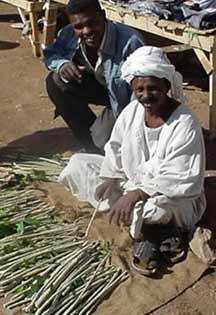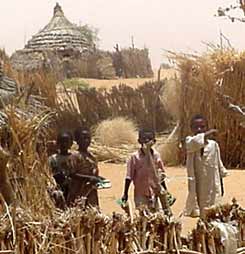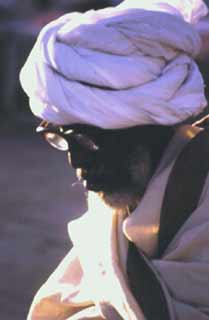


The Sudanese Arabs
The Sudanese Arabs find their heritage in the Bedouin who wandered the deserts of Saudi Arabia centuries ago. They are now a diverse group of 16 million people who find their commonality in the language of Arabic and the religion of the Islamic prophet Mohammed. The largest people group living in the North African country of Sudan, they have spread throughout the countries of North Africa and the Middle East, but a majority can be found living in either Sudan or Egypt. While three million of those living in Sudan belong to the supratribes of the Jahayna or Jaaliyin, the rest can be found primarily by their self-identification as an Arab from Sudan, rather than as a member of a specific tribe or people group. The single thread of a common culture binds these Sudanese Arabs with other Arabs from around the world. Aspects of pure Arab life, such as rigid codes of honor, loyalty and hospitality, have remained strong in the Sudanese Arab culture.
Their Lifestyle

Although some Sudanese Arabs have continued living in
the nomadic style of their ancestors and others live in
urbanized towns, the majority live in small rural villages,
where they grow grains, vegetables and cotton and raise livestock.
Although farming is the chief occupation of the villagers,
some have jobs as religious leaders or skilled carpenters or tailors.
The role of men in the Sudanese Arab society, as in all other Arabic cultures, is extremely important. Children, and especially male children, are highly valued. Women are in a subservient position but are more liberal and dress more freely than many of their counterparts around the world.
As with other Arabic societies, hospitality is an important part of the culture. One characteristic of Sudanese Arab culture is the coffee ceremony, which welcomes guests by serving them coffee in an elaborate presentation.
Their Religion
Islam is the religion of the majority of Arabs, and like their counterparts, most Sudanese Arabs devoutly embrace the Islamic faith. It is very common to find them stopping and bowing to pray whenever the call to prayer is heard, whether they are on the roadside or in their shop or business. They also practice the other four pillars of Islam, including the ritual fasting and the pilgrimage to the holy city of Mecca. The rules that govern society, including regulations concerning marriage, divorce, inheritance, taxation and warfare, are all found in Islamís holy book, the Koran.
The historical link between Arabs and the Muslim religion is still strong. There are few Sudanese Arab Christians, and converts are not well-accepted. While there have been Christian workers in Sudan for many years, most concentrate on reaching Southern Sudanese and neglect the countryís Muslim majority.

Prayer points
Pray against the spirit of Islam that has kept the
Sudanese Arabs bound for many generations.
Ask God to strengthen, encourage and protect
the small number of Sudanese Arab believers.
Pray that fear of persecution from Islamic
relatives will not hinder Sudanese Arabs as
they consider the Gospel.
Pray that the Lord will raise up workers
to go and minister among the Sudanese Arabs.
Ask the Lord to raise up many intercessors who will pray regularly for the people of Sudan.